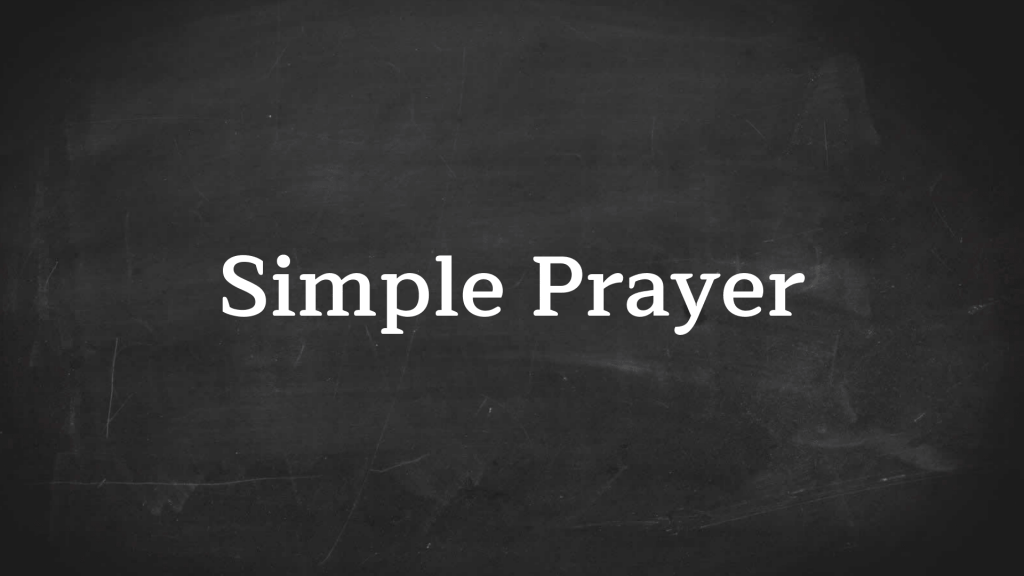How to Pray When You’re Distracted
Do your  silent prayers sometimes get ambushed by your overloaded brain? For example, when you pray for your friend, do you suddenly think of his smile and it reminds you of how happy he looks when his mouth of full of his favourite candy? And this image then reminds you of the sweet taste of sugar and now your mouth is watering, and you begin to think about whether you have the groceries you need to prepare dinner later that night. Then you remember that you’re not meal planning at the moment but praying! You’re only five seconds removed from an earnest prayer, but now you feel frustrated—maybe even embarrassed—that you can’t stay focused for even one minute while you talk with God.
silent prayers sometimes get ambushed by your overloaded brain? For example, when you pray for your friend, do you suddenly think of his smile and it reminds you of how happy he looks when his mouth of full of his favourite candy? And this image then reminds you of the sweet taste of sugar and now your mouth is watering, and you begin to think about whether you have the groceries you need to prepare dinner later that night. Then you remember that you’re not meal planning at the moment but praying! You’re only five seconds removed from an earnest prayer, but now you feel frustrated—maybe even embarrassed—that you can’t stay focused for even one minute while you talk with God.
It happens to me too.
Dealing with Distractions
Henri Nouwen once said that when we pray, thoughts jump around in our brains like monkeys in banana trees. I’ve heard of different ways to keep prayer distractions at a minimum and tried many of them. You can pray out loud or write down your requests instead of thinking of them in your head. You can make a note of the sudden reminders that pop up and then take care of them after you finish praying. These strategies can certainly work, but they don’t always relieve me from feeling discouraged that my prayers are being interrupted by the endless sea of my thoughts. Having my prayers hijacked by a distraction can make me feel that my faith is too weak because I can’t stay focused. I find myself wanting to give up because there’s a gap between what I’m thinking about and what I ought to be thinking about.
But when it comes to prayer, how many “oughts” are there for us to follow?
Simple Prayer
John Ortberg suggests an approach called simple prayer that I’ve found especially helpful. The strategy is, well, simple. You pray about what’s really on your mind, not what you wish is on your mind. The best response to a distraction is to present yourself to God as you truly are. Embrace the distractions as they enter your mind. This means that instead of responding to your errant thoughts with regret, you can attend to them with a prayer. Name your distraction and ask God to help you consider why it’s on your mind.
If you remember that you forgot to buy fuel for your vehicle last night, tell God about it. Maybe it’s an opportunity to thank God for the transportation you have. If you think about how nervous you feel about the meeting that’s scheduled later that day, remind yourself that God cares about your feelings and worries. Then describe how you truly feel and ask God to increase your awareness of His presence.
Ortberg’s motive for praying this way is based on the conviction that nothing kills prayer faster than pretending to be more noble than we really are. Every person deals with their share of distractions. Instead of wishing them away, we would be wise to present them to God.
Choosing to pray in this responsive way will put you in good company. Consider these words from a number of spiritual guides:
- Prayer simply dies from efforts to pray about “good things” that honestly do not matter to us. The way to get to meaningful prayer for those good things is to start by praying for what we are truly interested in. — Dallas Willard
- Prayer must lay before God what is in us, not what ought to be in us. — C.S. Lewis
- If prayer is to grow, it must begin in honesty. — John Ortberg
- According to Jesus, by far the most important thing about praying is to keep at it. — Frederick Buechner
The next time your mind wanders, take it as a sign that it’s something to speak with God about. It might be the very reason why it came to your mind in the first place.
[Keith Reed is Director of Special Projects for MB Seminary.
The phrase “simple prayer” was first used by Richard Foster. You can learn more about this topic by reading John Ortberg’s chapter called “Interrupting Heaven: The Practice of Prayer” in his book The Life You’ve Always Wanted.



